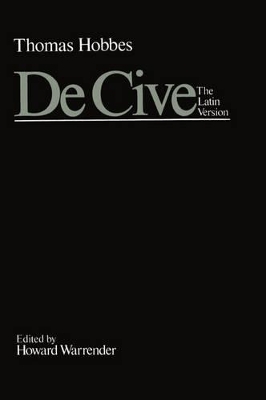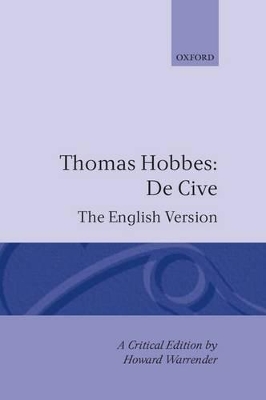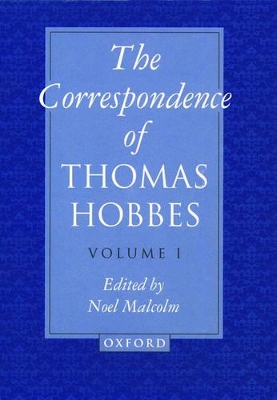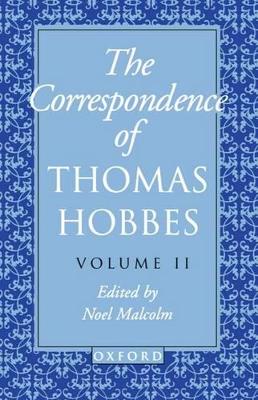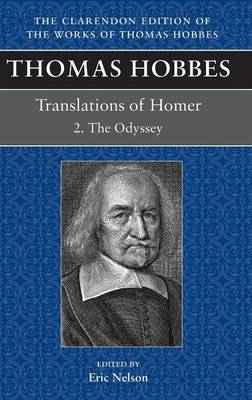Clarendon Edition of the Works of Thomas Hobbes
4 primary works • 5 total works
II
Howard Warrender
III
A scholarly edition of the English version of works by Thomas Hobbes. The edition presents an authoritative text, together with an introduction, commentary notes, and scholarly apparatus.
VI
The Correspondence of Thomas Hobbes: The Correspondence of Thomas Hobbes
by Thomas Hobbes
Published 22 September 1994
Thomas Hobbes (1588-1679) is one of the most important figures in the history of European philosophy. Although best known for his political theory, he also wrote about theology, metaphysics, physics, optics, mathematics, psychology, and literary criticism. All of these interests are reflected in his correspondence. Some small groups of his letters have been printed in the past (often in inaccurate transcriptions), but this edition is the first complete collection
of his correspondence, nearly half of which has never been printed before. All the letters have been transcribed from the original sources, and all materials in Latin, French, and Italian are printed together with translations in clear modern English. The letters are fully annotated, and there are
long biographical entries on all of his correspondents, based on extensive original research. The whole pattern of Hobbes's intellectual life and personal friendships is set in a new light. This is one of the most significant and valuable scholarly publications of this century.
of his correspondence, nearly half of which has never been printed before. All the letters have been transcribed from the original sources, and all materials in Latin, French, and Italian are printed together with translations in clear modern English. The letters are fully annotated, and there are
long biographical entries on all of his correspondents, based on extensive original research. The whole pattern of Hobbes's intellectual life and personal friendships is set in a new light. This is one of the most significant and valuable scholarly publications of this century.
VII
The Correspondence of Thomas Hobbes: Volume II: 1660-1679
by Thomas Hobbes
Published 22 September 1994
[NB in publicity materials use short description + first few review quotes if short of space]
Thomas Hobbes (1588-1679) is one of the most important figures in the history of European thought. Although best known for his political theory, he also wrote about theology, metaphysics, physics, optics, mathematics, psychology, and literary criticism. All of these interests are reflected in his correspondence.
Some small groups of his letters have been printed in the past (often in inaccurate transcriptions), but this edition is the first complete collection of his correspondence, nearly half of which has never been printed before. All the letters have been transcribed from the original sources, and all materials in Latin, French, and Italian are printed together with translations in clear modern English. The letters are fully annotated, and there are long biographical entries on all of his
correspondents, based on extensive original research.
These two volumes form one of the most significant and valuable publications of Hobbes scholarship this century, casting a new light on the whole pattern of his intellectual life and personal friendships.
Thomas Hobbes (1588-1679) is one of the most important figures in the history of European thought. Although best known for his political theory, he also wrote about theology, metaphysics, physics, optics, mathematics, psychology, and literary criticism. All of these interests are reflected in his correspondence.
Some small groups of his letters have been printed in the past (often in inaccurate transcriptions), but this edition is the first complete collection of his correspondence, nearly half of which has never been printed before. All the letters have been transcribed from the original sources, and all materials in Latin, French, and Italian are printed together with translations in clear modern English. The letters are fully annotated, and there are long biographical entries on all of his
correspondents, based on extensive original research.
These two volumes form one of the most significant and valuable publications of Hobbes scholarship this century, casting a new light on the whole pattern of his intellectual life and personal friendships.
